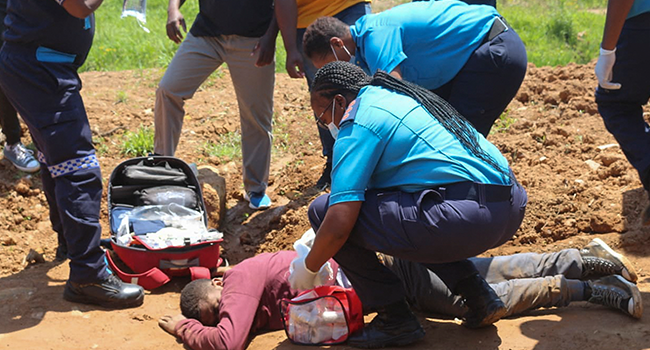A ban on protests silenced Eswatini’s pro-democracy movement Friday, as regional mediators sought to resolve the deadly unrest that enflamed the kingdom this week.
Formerly known as Swaziland, Africa’s last absolute monarchy has been rocked by demonstrations that prompted authorities to deploy the army and throttle the internet.
At least two people were killed and dozens injured in clashes with security forces, who fired tear gas, live rounds and rubber bullets to disperse crowds.
After the government stopped issuing protest permits, Friday saw shops reopen in the main cities of Mbabane and Manzini, with residents walking on the streets peacefully, according to an IgbereTV reports.

Mediators from the 16-nation Southern African Development Community met King Mswati III on Thursday and are scheduled to engage with various political parties on Friday.
The government also restored internet links Friday, two days after it had pulled the plug on most access.
But schools remained closed, and a strike by nurses entered its second day. The nurses are refusing to treat security officials after they stormed the largest government hospital in Mbabane.
The nurses’ union accused security forces of shooting at staff tending to the injured and travelling to work night shifts.
The government has dismissed reports of heavy-handed interventions as “unfounded”.
We “have reports of injuries which we are still collating but no death,” government secretary Sabelo Dlamini told reporters.
He said security forces had been deployed to prevent damage to “lives and property” and protect citizens from “unruly protestors and anarchists”.
Violent anti-monarchy protests erupted in June, fuelled by discontent over living conditions and lack of political freedom in the tiny southern African kingdom







